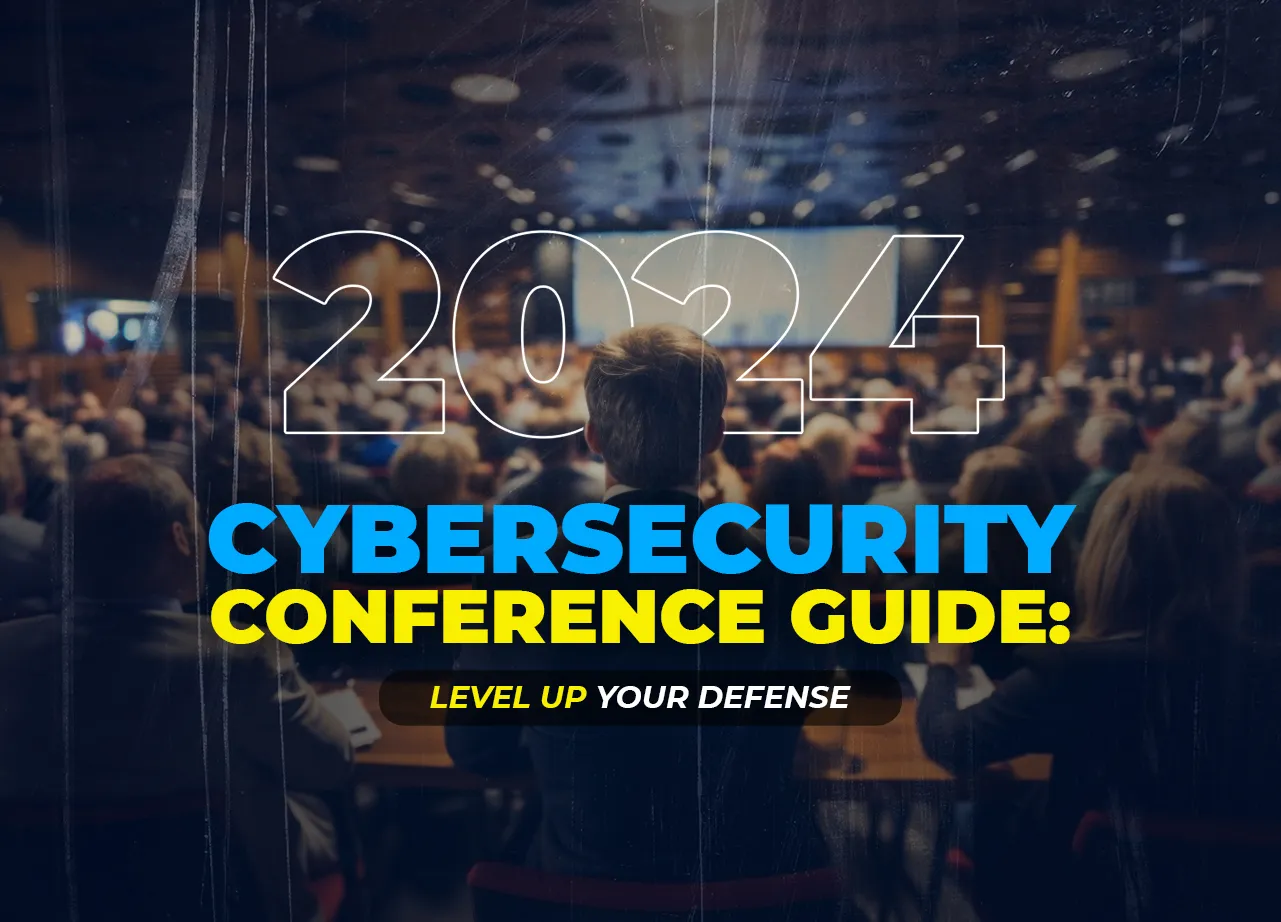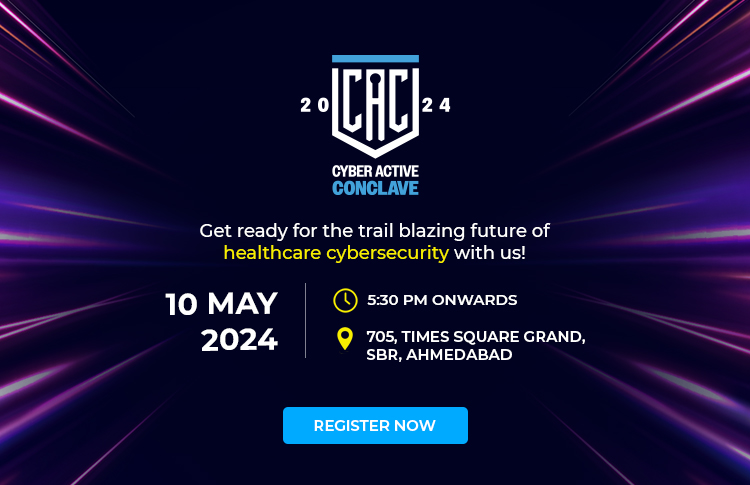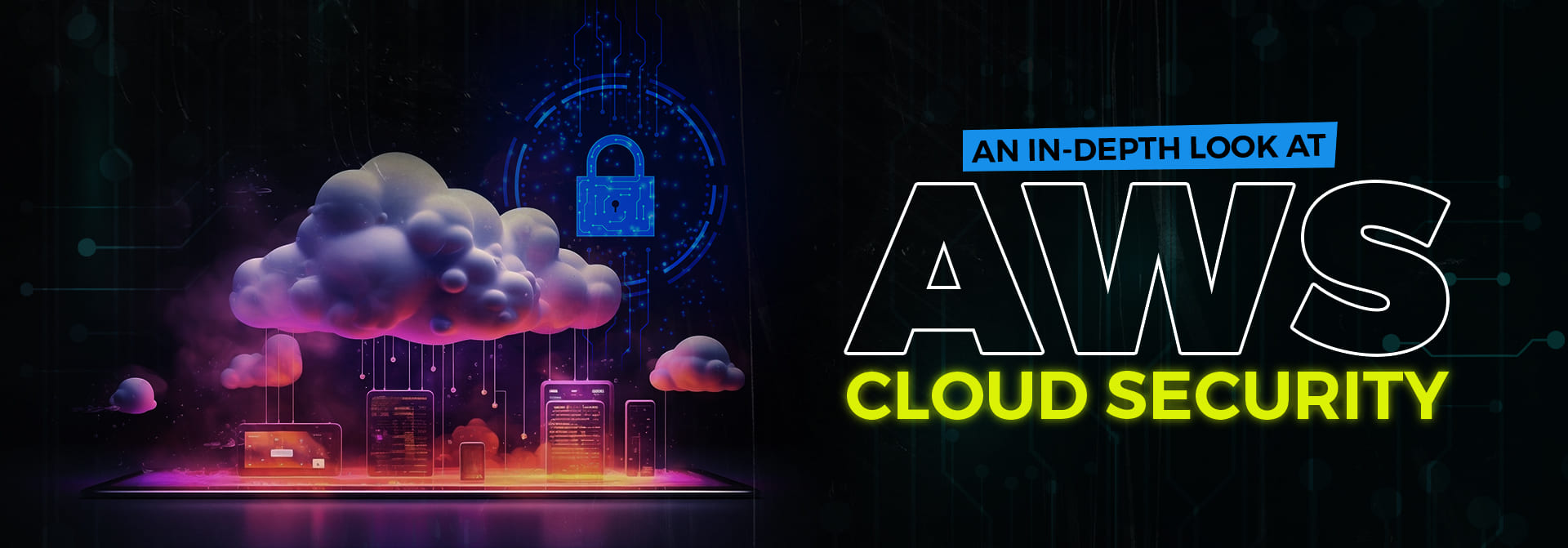
The cloud service provider, Amazon Web Services (AWS), implements security safeguards to protect both its infrastructure and the data of its clients from harm. By implementing AWS cloud security best practices, businesses and the service provider can maintain compliance with a number of security requirements and keep their security measures up to date. And guess who can help you in implementing AWS cloud security best practices – Of course best AWS developers. To hire AWS developers, you can trust PeoplActive blindly.
Check out how!
Table of Contents
ToggleWhat is AWS Cloud Security?
AWS provides the functionality known as AWS Cloud Security, which is designed to safeguard both your applications and the data they store and transfer. The shared responsibility model is applied by AWS in terms of security. Accordingly, AWS is responsible for managing security for the cloud infrastructure, while customers are in charge of managing security for their own apps and data.
Advantages of using AWS
Customers can benefit from the following AWS cloud security features:
- They have control over who can access their data and where it is stored. Access controls and ongoing monitoring from AWS made this possible. As a result, the appropriate resources will always have access to them.
- By automating security activities, you can lessen human configuration errors. Customers now have more time to devote to important responsibilities like business expansion and innovation.
- Extend the advantages of AWS security through the technology and services provided by AWS-selected solution providers.
- AWS is subjected to third-party examination to confirm that it complies with international compliance standards, and it constantly analyzes regulatory requirements to assist clients in meeting security and compliance standards across industries like healthcare, banking, and others.
Also Read: AWS Vs Azure Vs Google Cloud: Choosing the Right Cloud Provider for Your Business
Components of AWS Security
Many customers expect AWS to offer more security in comparison to a conventional on-premises solution. Here is a closer look at some of the attributes that make AWS a secure platform:
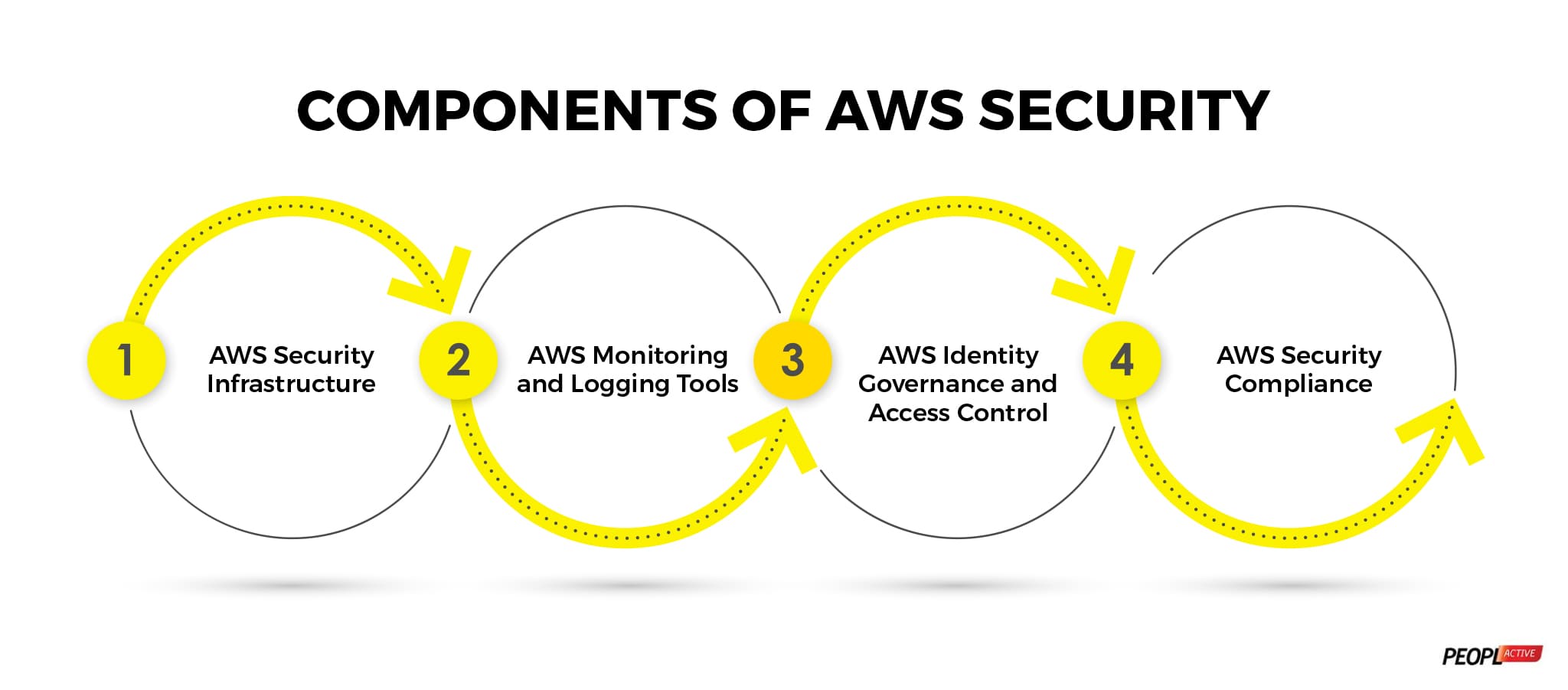
AWS Security Infrastructure
Installation of firewalls and encryption software is necessary for an on-premises configuration. Along with the expenditures of on-site operation, such elements might greatly increase costs. The cloud infrastructure, which includes security protocols, gives AWS an apparent advantage over the conventional setup. Network firewalls, connectivity choices, and DDoS (distributed denial of service) mitigation are some of the tools that AWS offers to increase privacy and regulate network access. All data traveling across AWS’s global network is automatically encrypted.
AWS Monitoring and Logging Tools
AWS provides tools that let users see what’s going on inside the AWS environment. Customers can so easily identify problems before they have an impact on the company. These technologies include Amazon CloudWatch, AWS CloudTrail, and Amazon GuardDuty.
AWS Identity Governance and Access Control
AWS Identity and Access Management (IAM) enables customers to manage user accounts and permissions. AWS also provides additional services, such as AWS Single Sign-On and AWS Multi-Factor Authentication.
AWS Security Compliance
For many compliances needs and legal requirements, AWS has third-party validation. Consider one, and it’s very probable that AWS has it covered: SOC 1, SOC 2, SOC 3, ISO 9001/ISO 27001, PCI DSS, HIPAA, GDPR. Additionally, AWS provides capabilities for reporting that demonstrate data compliance to authorities. But keep in mind that AWS also has obligations to its clients in terms of security compliance; in the end, it’s up to each company to make sure that it complies with all relevant legal standards.
How does AWS Cloud Security Works?
AWS Cloud Security is a collection of mechanisms to safeguard infrastructure and data on the AWS cloud, including:
- Shared Responsibility: Both AWS and its clients are accountable for security.
- IAM: Using AWS Identity and Access Management, you may manage access.
- Network Security: Utilize VPCs, security groups, and NACLs to isolate and secure resources in terms of network security.
- Encryption: Utilize AWS services like S3 and KMS to encrypt data both at rest and while it is being transmitted.
- Logging and Monitoring: Use Config, CloudWatch, and CloudTrail to keep an eye on things.
- Best Practices: Comply with AWS’s compliance requirements and best practices for security.
- DDoS Protection: Use AWS Shield to protect yourself against DDoS attacks.
- Security Services: Make use of specific AWS security services.
- Incident Response: Plan your response to occurrences involving security.
- Third-Party Solutions: Using third-party technologies, you can increase security.
Raise your Security Posture with PeoplActive’s AWS Security Developers
Avoid These AWS Security Mistakes
Check out these common mistakes that you should avoid while using AWS Cloud:
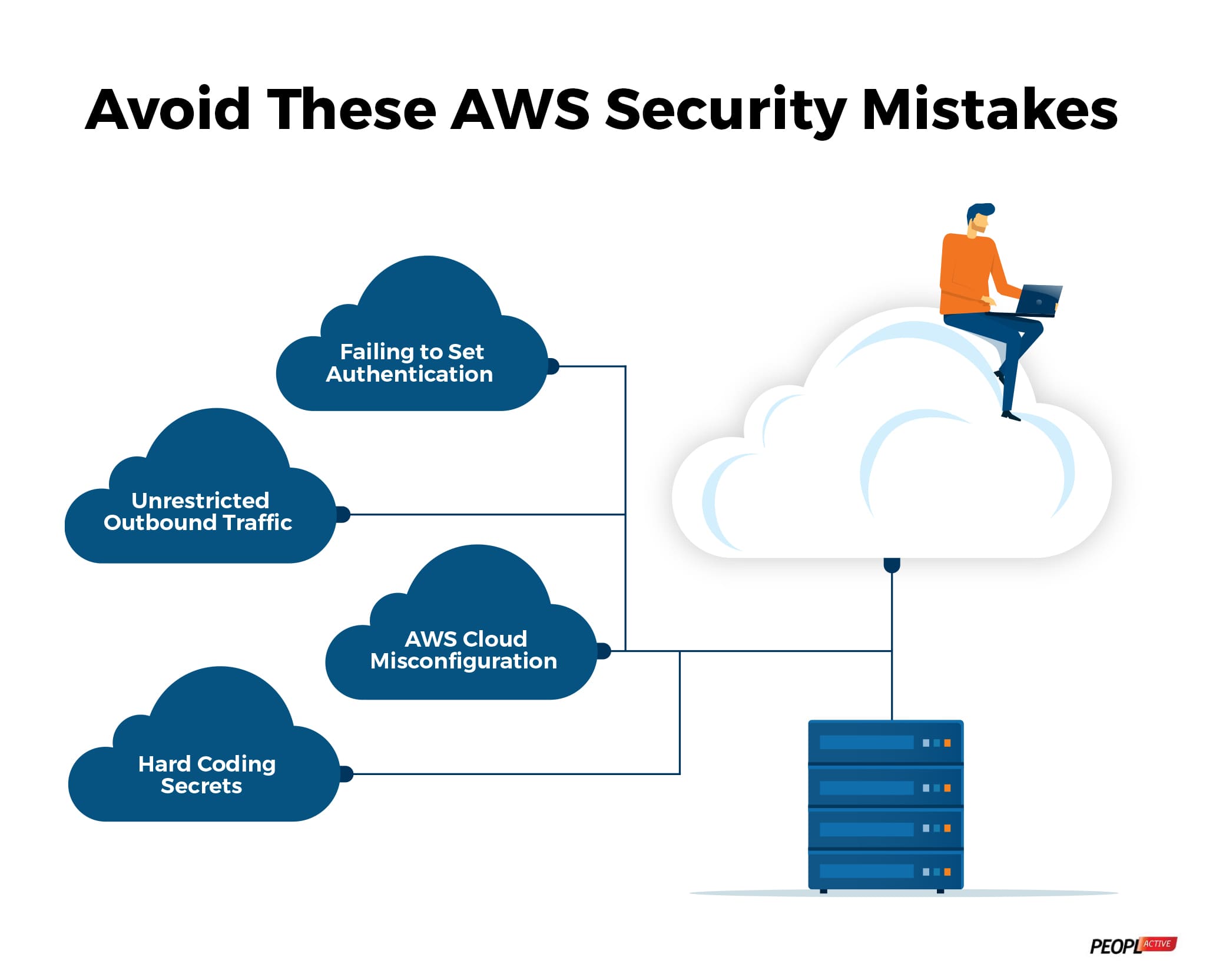
Failing to Set Authentication
Make sure all important AWS resources are authenticated, at the very least; there should be processes in place to make sure nobody forgets to secure resources. For all accounts or service roles that have access to critical resources or the Amazon interface, it is preferable to employ multi-factor authentication (MFA) together with strict password constraints.
Unrestricted Outbound Traffic
To avoid data exfiltration after a security breach or in the event of an unintentional loss, outbound access should be prohibited. Enter specified IP addresses or address ranges to stop your resources from connecting to IPv4 addresses that are not under your control.
AWS Cloud Misconfiguration
The correct configuration of cloud services, including the numerous EC2 security configurations, is ensured by Cloud Security Posture Management (CSPM) systems. By spotting errors and other security vulnerabilities and automatically fixing them, CSPM tools can be used to continuously check the health of cloud setups.
Hard Coding Secrets
For temporary AWS credentials, AWS IAM roles are frequently utilized. To rotate, maintain, and retrieve database credentials, API keys, and other secrets for longer-lived credentials, utilize ASW Secrets Manager. This avoids the need to hard-code sensitive information because it can be accessed via the Secrets Manager API.
Also Read: DevOps Automation with AWS CodePipeline and AWS CodeDeploy
Best Practices for Securing your AWS Environment
Best practices for AWS cloud security are actions that, when taken, improve the security that is already present in the AWS cloud. These options consist of:
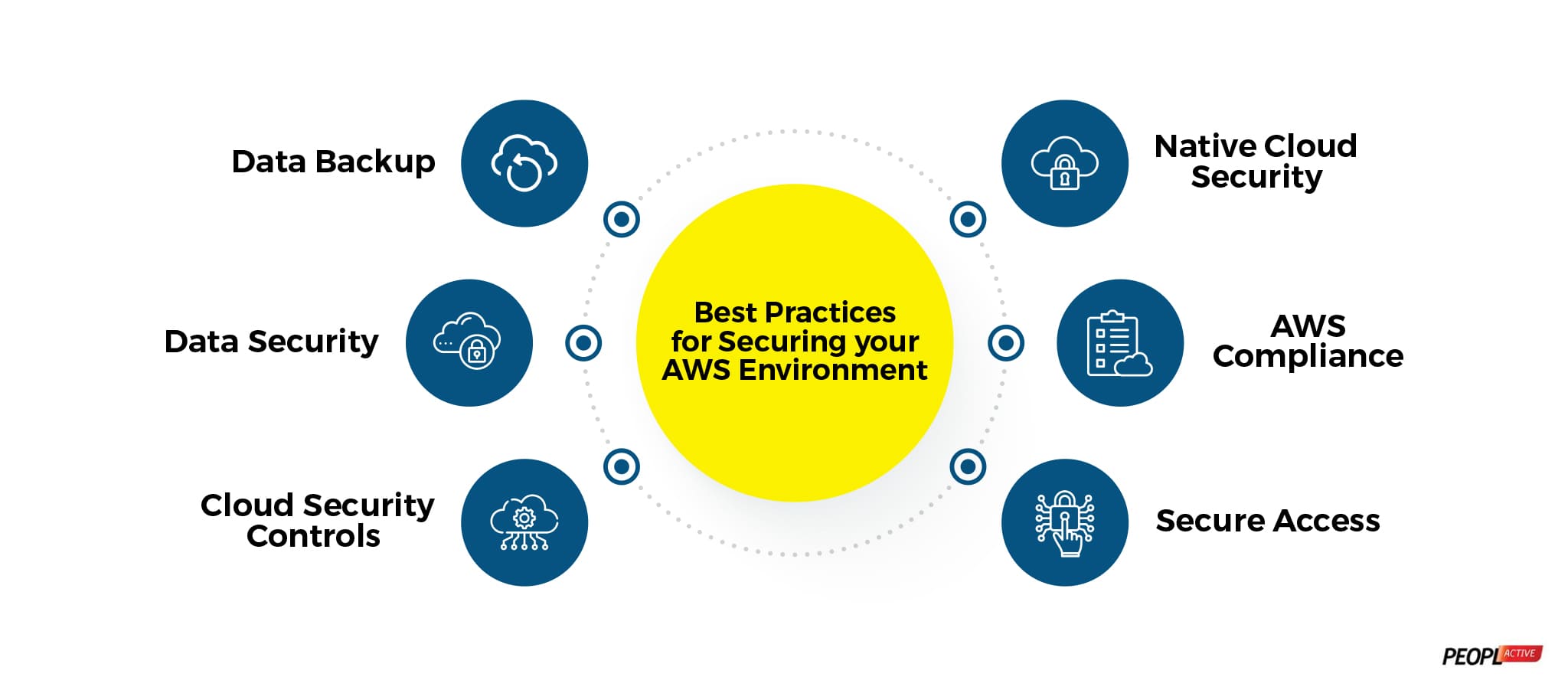
Data Backup
AWS Backup makes it simple and automatic to protect data from unforeseeable, maybe natural or man-made disasters. By reducing the number of people who can access and modify the stored data, multi-factor authentication would improve system security.
Data Security
To protect cloud-based data from hostile attacks, encryption is required. Encryption is used during both storage and transmission. Because there would be a problem with non-compliance without it, several regulatory standards also need it for security. An individual can have centralized control over the deployed encryption keys thanks to AWS’s key management service (KMS). Adoption of data encryption guarantees a strong barrier against intruders.
Cloud Security Controls
Effective AWS cloud policies must be implemented to enforce suitable security practices. Multi-factor authentication, identity and access management, and regular access key updates are crucial cloud security controls for the platform’s security. It is crucial to generate strong passwords using a variety of case and character combinations, as well as to regularly check the access keys and passwords.
Native Cloud Security
Select cloud-based alternatives to traditional security systems since they are more equipped to manage the cloud paradigm. Check to see if the AWS security solution you select can be successfully integrated into your company’s development pipeline for the data and apps it will be defending. They should have experience advising cloud-based enterprises like yours on security solutions and be adept at spotting external threats and vulnerabilities to the applications and sensitive data stored in the cloud.
AWS Compliance
Utilize AWS compliance programs to stay compliant and obtain a better grasp of the security features that AWS provides in the cloud. One of Amazon’s tools, AWS Artifact, can help you identify any issues that need to be fixed as well as the compliance requirements that your company must meet to be compliant.
Secure Access
It is crucial to safeguard cloud access to your organization’s apps and data using AWS security in order to guarantee security. Role-based access control and multidimensional authentication are two authentication and authorization techniques that can be used to accomplish this. Other measures, such as using strong passwords that should be updated periodically and removing access for inactive accounts, can help secure access to critical data within the cloud environment.
Wrapping it Up
Where organizations rely significantly on the cloud to store sensitive data and run crucial apps, AWS cloud security is vital. Data loss, monetary losses, and reputational harm are just a few of the terrible effects that security breaches may cause. The best AWS cloud security for your company can be obtained by working with the AWS developers at PeoplActive. We can quickly and effectively handle all your security problems with our expertise to hire AWS developers in just 48 hrs. Our seasoned developers are proficient in threat assessment, familiar with AWS security best practices, and capable of putting strong security measures into place. To create security solutions that meet your company’s demands, they collaborate closely with your team. When you work with PeoplActive, you’re doing more than just hiring an AWS developer—you’re investing in the security of your most important assets, protecting your company from attacks, and ensuring your long-term success in the cloud. Don’t wait; hire cloud engineers with PeoplActive and take a leap in your business.
Ready to Hire Cloud Engineers?

